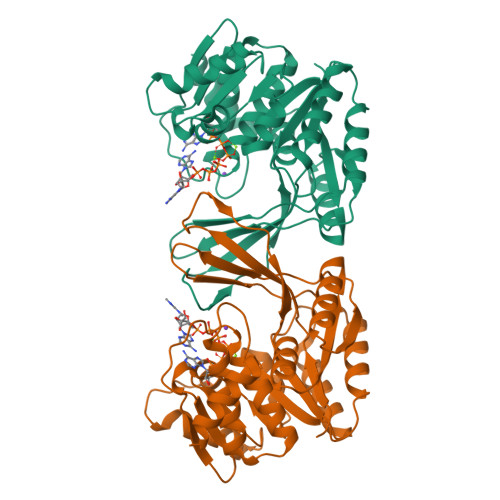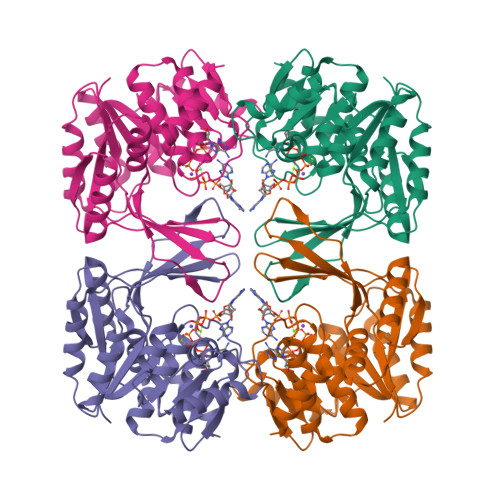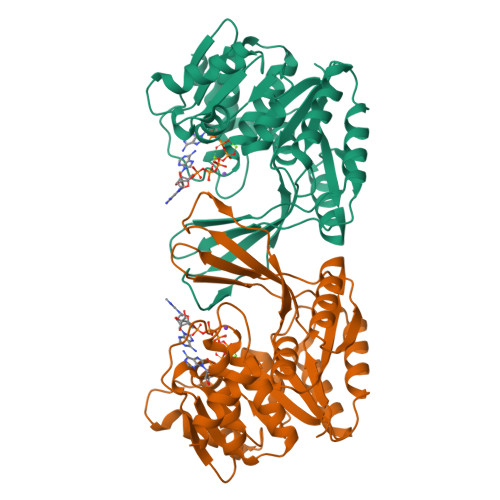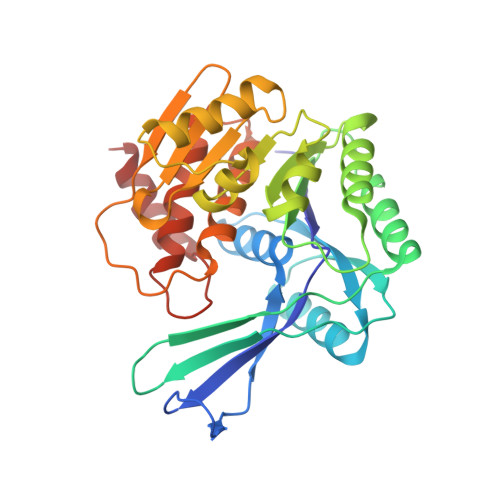A Ribokinase Family Conserved Monovalent Cation Binding Site Enhances the MgATP-induced Inhibition in E. coli Phosphofructokinase-2
Baez, M., Cabrera, R., Pereira, H.M., Blanco, A., Villalobos, P., Ramirez-Sarmiento, C.A., Caniuguir, A., Guixe, V., Garratt, R.C., Babul, J.(2013) Biophys J 105: 185-193
- PubMed: 23823238
- DOI: https://doi.org/10.1016/j.bpj.2013.05.028
- Primary Citation of Related Structures:
3UMO, 3UMP - PubMed Abstract:
The presence of a regulatory site for monovalent cations that affects the conformation of the MgATP-binding pocket leading to enzyme activation has been demonstrated for ribokinases. This site is selective toward the ionic radius of the monovalent cation, accepting those larger than Na(+). Phosphofructokinase-2 (Pfk-2) from Escherichia coli is homologous to ribokinase, but unlike other ribokinase family members, presents an additional site for the nucleotide that negatively regulates its enzymatic activity. In this work, we show the effect of monovalent cations on the kinetic parameters of Pfk-2 together with its three-dimensional structure determined by x-ray diffraction in the presence of K(+) or Cs(+). Kinetic characterization of the enzyme shows that K(+) and Na(+) alter neither the kcat nor the KM values for fructose-6-P or MgATP. However, the presence of K(+) (but not Na(+)) enhances the allosteric inhibition induced by MgATP. Moreover, binding experiments show that K(+) (but not Na(+)) increases the affinity of MgATP in a saturable fashion. In agreement with the biochemical data, the crystal structure of Pfk-2 obtained in the presence of MgATP shows a cation-binding site at the conserved position predicted for the ribokinase family of proteins. This site is adjacent to the MgATP allosteric binding site and is only observed in the presence of Cs(+) or K(+). These results indicate that binding of the monovalent metal ions indirectly influences the allosteric site of Pfk-2 by increasing its affinity for MgATP with no alteration in the conformation of residues present at the catalytic site.
Organizational Affiliation:
Departamento de Bioquímica y Biología Molecular, Facultad de Ciencias Químicas y Farmacéuticas, Universidad de Chile, Santiago, Chile.




















